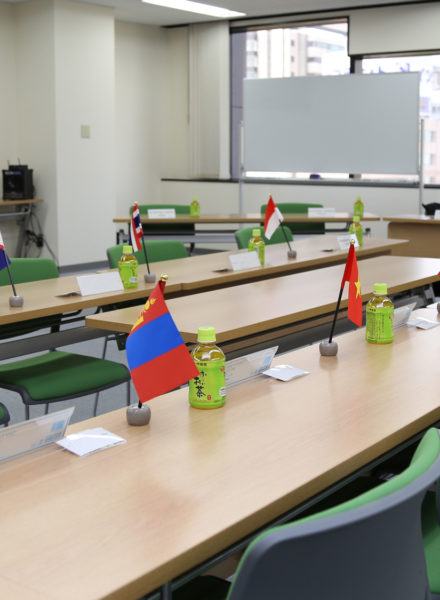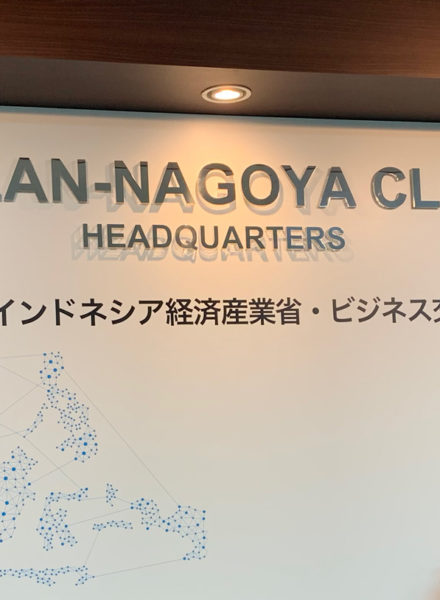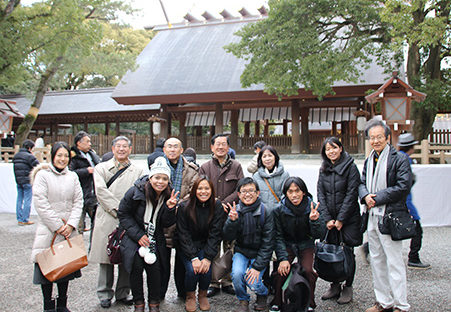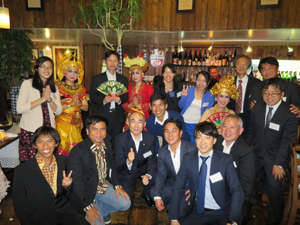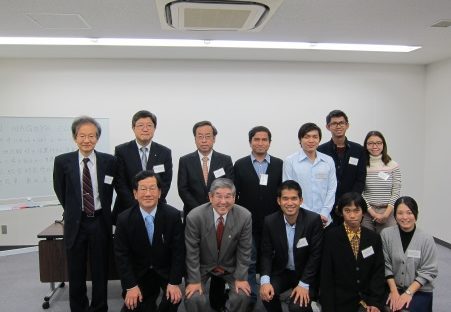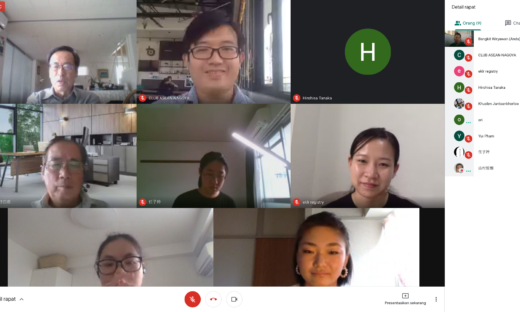第40回定例ミーティング「ASEAN-NAGOYA CLUBとASEAN諸国」The 40th Regular Meeting “ASEAN-NAGOYA CLUB and ASEAN Countries”
今回のテーマは「ASEAN-NAGOYA CLUBとASEAN諸国」。当CLUB理事・事務局長の松久久也より、「私たちが何を目指しているのか」をテーマにプレゼンテーションを行いました。
私たちの理念は「はじめに相互理解」。
海外に赴任した日本人には、現地に人たちに溶け込まず、日本を向いて仕事をしている人が多いという現象があります。「日本の製品やサービスは素晴らしい。だから現地を理解していなくても売れる」という考え方は、グローバル化が進む中で日本の競争力が落ちてきている昨今では限界があります。
私たちは、昨年から今年にかけて、インドネシアと日本の両国で考え方に関する調査を行いました。その結果、労働観では62%、人生観では83%、勤労観でも82%と、大きな違いが判明しました。このようなことを知らず、理解しようとせず、すべて日本流で押し切ろうとしても、上手く物事が進むはずがありません。大事なことは、相手国の文化に敬意を払い、いったい日本とどこが違い、どんなニーズが現地にあり、どのような考え方、対応の仕方が相応しいのか、素直な心で学ぶことが肝要です。
私たちがサポートをしている名古屋大学への留学生は、母国に帰ればその国の将来を担う人たちばかりです。一方、人口減少が進む日本では、資本・技術・ノウハウの行き場が無くなっていきます。しかし、私たちが蓄積した資本・技術・ノウハウは膨大です。このリソースをASEANの優秀かつ将来を担う留学生の皆さんと分かち合い、融合させることで、ASEANと日本の相互に渡る発展を築くものと確信しています。
そして、それを実現する一步は、ASEANと日本との「本音で語る相互理解に尽きる」ものと考えています。
This time, theme was about “ASEAN-NAGOYA CLUB and ASEAN countries”. Mr. Hisaya Matsuhisa, Executive Director and Secretary-General of ANC, gave a presentation about “What are we aiming for?”.
Our philosophy is “Introduction to mutual understanding”.
There is a phenomenon that many Japanese who have been assigned overseas do not blend in with the local people and their working culture. The idea that “Japanese products and services are wonderful, so they can be sold easily without understanding the local” is limited in recent years when Japan’s competitiveness is declining as globalization progresses.
From last year to this year, we conducted a survey in both Indonesia and Japan. As a result, a big difference was found, with 62% for the view of labor, 83% for the view of life, and 82% for the view of work. We have to understand that we can’t force our way of life and thinking to others because it will cause trouble for the business itself and even for the relation between the two countries.
The important thing is highly respect to the culture of the partner country and to learn the differences, what we need in the field, and what kind of way of thinking they have, and also giving appropriate response.
We totally support the international students at Nagoya University because they will be responsible for the future of their country when they return to their home countries. On the other hand, in Japan, where the population is declining, there will be no place for the enhancement of capital and technology. I am convinced that by sharing and integrating this resource with the excellent international students of ASEAN, we will build mutual development between ASEAN and Japan.



